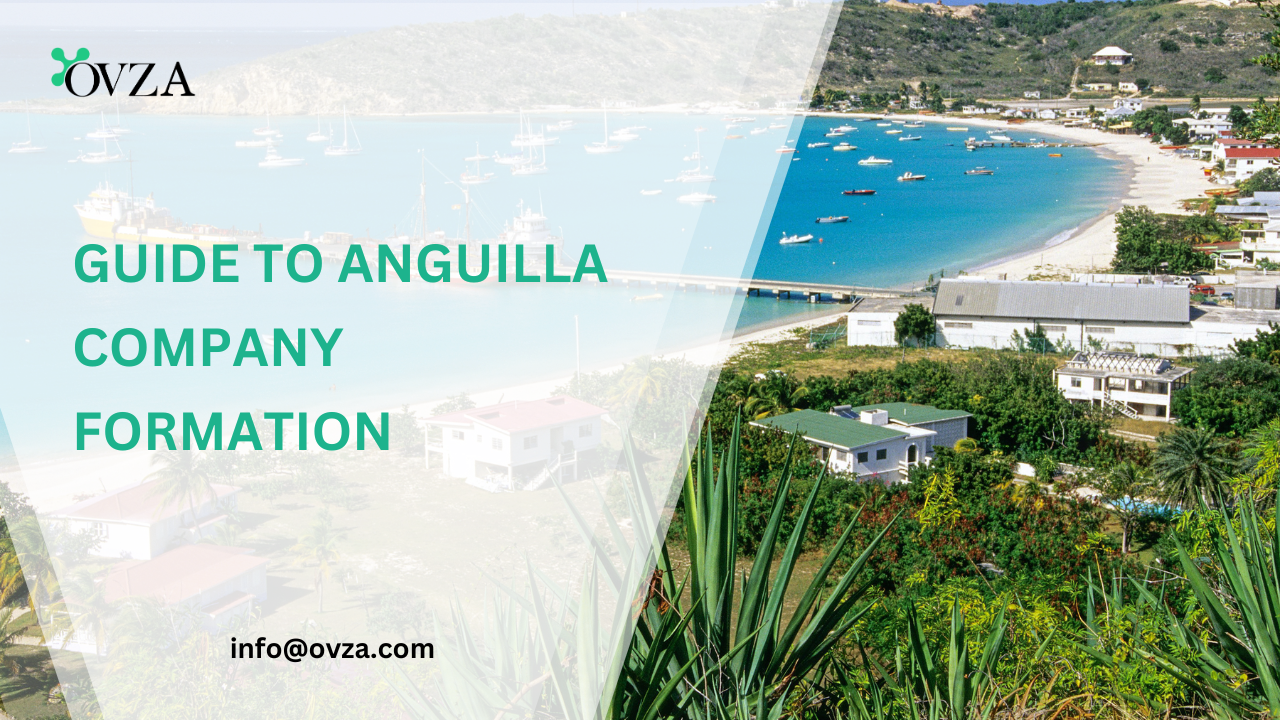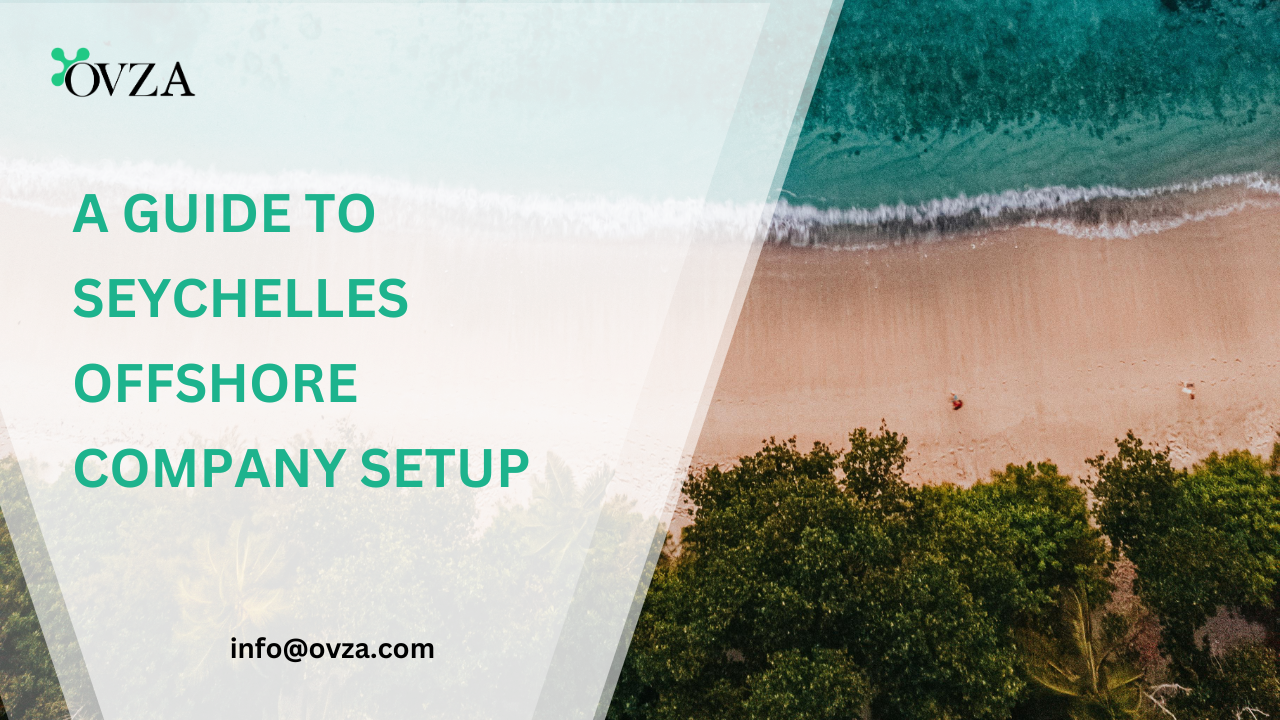Discover the benefits of Anguilla Company Formation, including tax exemptions, privacy, and fast incorporation for secure offshore business operations.
Setting up an offshore company in Anguilla is a straightforward process, offering numerous benefits like tax exemptions, privacy, and minimal reporting requirements. With fast incorporation timelines and a stable regulatory framework, Anguilla Company Formation is an attractive option for international businesses seeking efficient offshore solutions.
This guide provides a step-by-step overview, from choosing a business structure to ensuring compliance with Anguilla Company Formation requirements. Whether for asset protection or global expansion, Anguilla Company Formation offers a secure and efficient platform for offshore operations, making it a preferred choice for entrepreneurs and investors worldwide.
- Key Advantages of Offshore Companies in Anguilla
- Step-by-Step Guide to Setting Up an Offshore Company in Anguilla
- Prepare the Required Documentation
- Engage a Registered Agent
- Submit Incorporation Documents
- Pay Registration Fees for Anguilla Company Formation
- Restrictions for Anguilla Offshore Companies
Key Advantages of Offshore Companies in Anguilla
- Tax Benefits: Anguilla imposes no corporate, capital gains, or inheritance taxes for offshore entities.
- Privacy: Shareholder and director information is not part of public records.
- Fast Incorporation: The process can be completed in 1–2 business days.
- Ease of Maintenance: Minimal reporting and accounting requirements.
- Stable Jurisdiction: Strong regulatory framework supported by English common law.
Step-by-Step Guide to Setting Up an Offshore Company in Anguilla
- Choose the Right Business Structure
The most common structure for offshore companies in Anguilla is the International Business Company (IBC). An IBC offers:
- Full exemption from local taxes.
- The ability to conduct business internationally.
- Flexibility in shareholding and directorship requirements.
-
Prepare the Required Documentation
To register an IBC, you will need:
- Proposed company name: Ensure the name is unique and includes an appropriate suffix such as “Ltd.,” “Corp.,” or “Inc.”
- Identification of directors and shareholders: Passport copies and proof of address are typically required.
- Memorandum and Articles of Association: These define the company’s structure and operations.
- Registered agent details: A licensed registered agent in Anguilla is mandatory.
-
Engage a Registered Agent
Anguilla law requires all offshore companies to work through a licensed registered agent. The agent will:
- Submit your incorporation documents.
- Act as the company’s intermediary with local authorities.
- Maintain your company’s registered address in Anguilla.
-
Submit Incorporation Documents
The registered agent will file the necessary documents with the Anguilla Financial Services Commission (AFSC), including:
- Memorandum and Articles of Association.
- Proof of payment of registration fees.
- Company name reservation confirmation.
The AFSC processes applications promptly, often within one business day.
-
Pay Registration Fees for Anguilla Company Formation
Fees vary depending on the authorized share capital:
- Up to USD 50,000: Approximately $250.
- Over USD 50,000: Higher fees apply.
The registered agent typically includes these fees in their service package.
- Receive the Certificate of Incorporation
Once approved, you will receive a Certificate of Incorporation, which officially establishes your company. This certificate is critical for opening bank accounts and conducting international business.
- Open a Corporate Bank Account
Anguilla does not mandate opening a local bank account. However, you may wish to establish an account in a business-friendly jurisdiction to facilitate international transactions. Key requirements include:
- Certificate of Incorporation.
- Director and shareholder identification.
- Business plan (for some banks).
- Ensure Compliance
While Anguilla offshore companies benefit from minimal reporting, compliance with local laws is crucial:
- Maintain accurate internal records.
- Renew the company’s registration annually.
- Appoint a company secretary if required (not mandatory).
Ongoing Maintenance and Costs
- Annual Fees: Offshore companies must pay an annual renewal fee to the AFSC via their registered agent.
- Accounting and Audits: While IBCs are not required to file financial reports, maintaining proper internal records is recommended.
- Registered Agent Fees: Agents typically charge annual service fees for their role.
Restrictions for Anguilla Offshore Companies
Anguilla IBCs are prohibited from:
- Conducting business with local residents or within Anguilla.
- Owning property within Anguilla.
- Offering financial or banking services without proper licensing.
Conclusion
Setting up an offshore company in Anguilla is a streamlined process, offering significant tax benefits, privacy, and operational flexibility. However, working with a reputable registered agent and understanding the legal and compliance landscape is essential. Whether you’re looking to protect assets, optimize taxes, or expand internationally, Anguilla provides a secure and efficient platform for offshore business operations.












